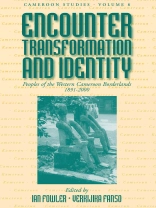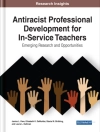Bringing together key historical and innovative ethnographic materials on the peoples of the South-West Province of Cameroon and the Nigerian borderlands, this volume presents critical and analytical approaches to the production of ethnic, political, religious, and gendered identities in the region. The contributors examine a range of issues relating to identity, including first encounters and conflict as well as global networking, trans-national families, enculturation, gender, resistance, and death. In addition to a number of very striking illustrations of ethnographic and material culture, this volume contains key maps from early German sources and other original cartographical materials.
İçerik tablosu
List of maps and figures
Notes on contributors
Foreword. Shirley Ardener: A personal note
Verkijika G. Fanso
Preface. Shirley Ardener: Fortifying Cameroon Studies
Martin Njeuma and Dorothy Njeuma
Introduction
Ian Fowler
Chapter 1. Oral traditions and administrative identities
Edwin Ardener
Chapter 2. Epitome of extracts from Hermann Detzner Im Lande des Dju-Dju Berlin: August Scherl, 1923
Sally Chilver
Chapter 3. Von Gravenreuth and Buea as a site of history: early colonial violence on Mount Cameroon
Peter Geschiere
Chapter 4. Azi since Conrau: Anthropological and historical perspectives
Michael Mbapndah Ndobegang and Fiona Bowie
Chapter 5. The submerged history of Nsanakang: A glimpse into an Anglo-German encounter
Ute Röschenthaler
Chapter 6. The latent struggle for identity and autonomy in the southern Cameroons, 1916-1946
Verkijika G. Fanso
Chapter 7. Titi Ikoli revisited: Fetishism, gender and power in transitional forest economies of the Upper Cross River borderlands, 1920s-1990s
Caroline Ifeka
Chapter 8. Commemorating women in a patrilineal society
Margaret Niger-Thomas
Chapter 9. The challenge of multi-sited ethnography
Fiona Bowie
Chapter 10. The essentialist temptation: Eucharistic meal and identity in postcolonial African Catholicism
Lado Ludovic
Chapter 11. Making a difference in north-south relationships: Public and private spheres and the role of the human seed in networking for local development
Joyce Endeley and Nalova Lyonga
Appendix: Extracts on the Widekum and the Tikar taken from notes on the Bamenda grassfields
Sally Chilver and Phyllis Kaberry
Combined references
Index
Yazar hakkında
Verkijika G. Fanso is Professor of History at the University of Yaoundé I. He has published widely on African political history and Cameroon history and culture. He has played a key role in promoting the culture of Cameroon and supporting the Cameroon archives at Buea and is President of the Association of Friends of Archives and Antiquities in Cameroon.












